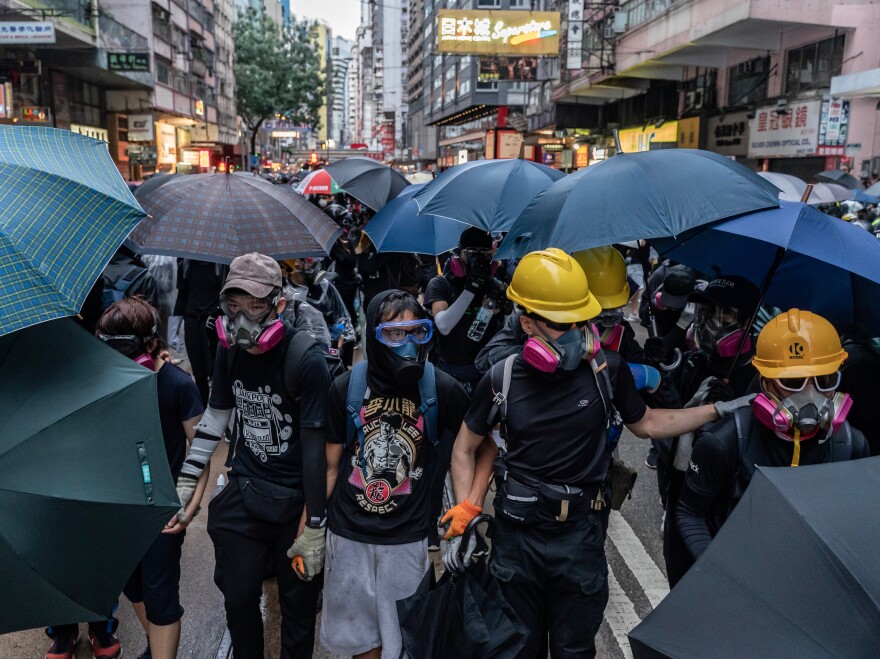Anti-government protests in Hong Kong continued on Sunday as tens of thousands of demonstrators took to the streets to defy the ban on face masks that went into effect just days earlier.
Hong Kong's chief executive Carrie Lam announced Friday that she would use colonial-era emergency powers to enforce the ban that targets those wearing face masks at public gatherings. Lam is the first to invoke those powers in more than 50 years.
This came during the same week that mainland China celebrated 70 years of Communist Party's ruling power in the country. While festivities, including a parade that showcased the country's military might were held in Beijing, Hong Kong experienced widespread unrest with violent protests that included a pro-democracy protester being shot by police.
Lam's decision set off more violent protests on Friday night, and a demonstration march on Saturday. The city's metro system was effectively shut down on Friday after protesters began vandalizing stations. While some stations were open on Sunday, a majority remained closed, according to the South China Morning Post.

Sunday's protests started out peacefully as people began marching in the rain, but things changed quickly once police fired tear gas into the crowds in an attempt to force them to disperse.
Protesters smashed in the storefronts to mainland Chinese banks and graffitied and tore up streets, leaving bricks strewn across roads to try and slow the advance of riot police.
As NPR's Emily Feng reports, the progression from peaceful protests in the morning to battling with police in the streets at night has become a recognized pattern.
Tensions and violence have continued to rise between the two groups, following police officers' use of live bullets on two protesters this week. The 18-year-old protester shot in the chest on Tuesday was critically injured. Another 14-year-old protester was shot in the leg on Friday, and reported to be in stable condition after an operation, the South China Morning Post reports.

Among the protesters demands are pro-democracy reforms and an investigation into police officers' use of violent force. But after the face mask ban went into effect, protesters have been pushing back on what they fear could be the first step in their rights and freedoms being encroached upon.
Some of the protesters, pushing back on Beijing's influence, have expressed concern that the mainland could interfere more since Lam's decision to invoke emergency powers with the anti-mask ban.
But demonstrators have continued to wear masks in direct defiance of the ban. By doing so, they face a risk of up to one year in prison or a fine of 25,000 Hong Kong dollars. So many people have worn masks that the ban has been rendered practically unenforceable by police.
Even so, some protesters believe the risk is worth it. One 18-year-old protester told NPR's Emily Feng, that he thinks if Hong Kong's government can use those emergency powers to ban face masks, that it can also take away other civil liberties the region is afforded. He added that while there is great risk in joining the protests, he believes it is worth it in order to protect his home.
Copyright 2021 NPR. To see more, visit https://www.npr.org.



